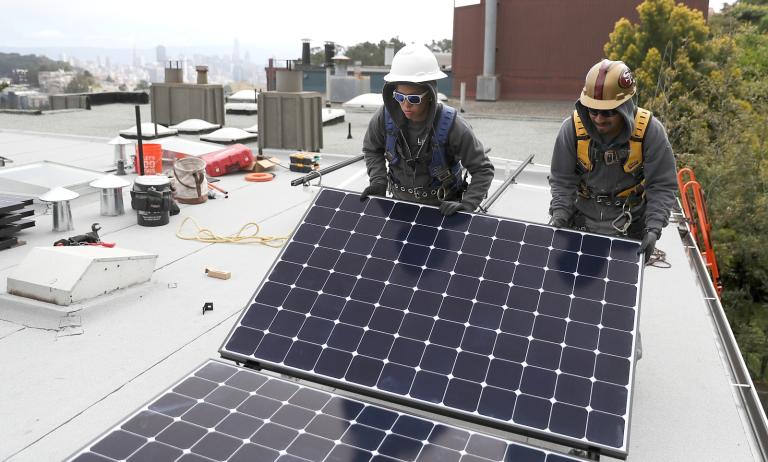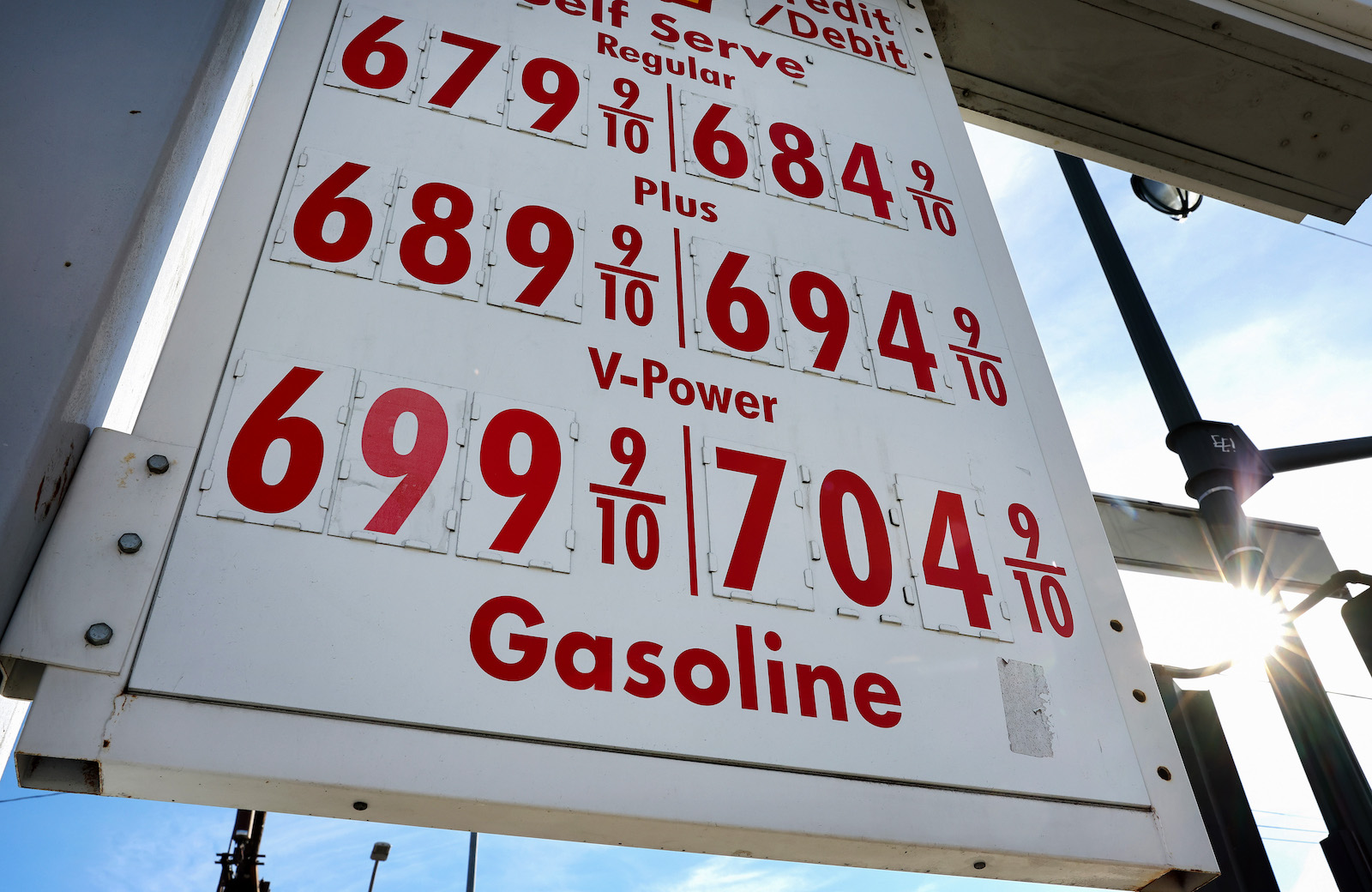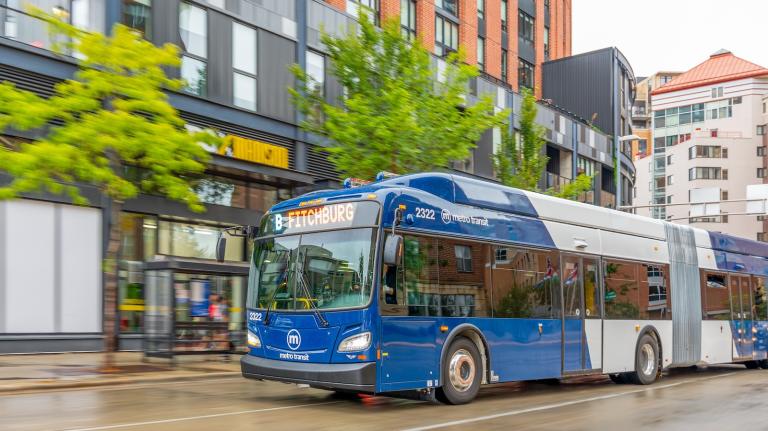In the past few months, fossil fuel prices have done exactly what someone who cares about climate change might want: They went up. And up. And up. Since January, the average retail price for gasoline nationwide has jumped by almost a dollar per gallon; across the country, drivers are spending at least $12 more every time they fill up their tanks. One Mobil station in Beverly Hills, California, made headlines when its “super” gasoline hit nearly $8 per gallon.
These price increases — brought about by the Russian invasion of Ukraine (Russia provides roughly 10 percent of the global supply of oil) and a continuing rebound in demand from the COVID-19 pandemic — have had deleterious effects on American consumers, who are already struggling with sky-high inflation. But some have suggested that the rising cost of oil could have a silver lining. Transportation is the largest source of U.S. greenhouse gas emissions, accounting for almost 30 percent of the country’s carbon footprint. Could rising gas prices change American driving enough to help curb global warming?
The answer, unfortunately, is complicated. It’s not enough for gas prices to just go up — American consumers also have to reduce their gasoline use, either by electing to use alternative methods of transportation (buses, bikes, trains) or switching over to electric vehicles. (The cost of filling the “tank” of an electric vehicle via home charging is only around $16, compared to about $50 a tank at current gas prices.)
There are a few promising signs of such a shift. Online searches for electric vehicles more than doubled during the most recent gas price hike, and the surging cost of fuel may make some Americans think twice before purchasing a new gas-guzzling SUV. But historically, when faced with high gas prices, U.S. drivers complain and blame the sitting president — and don’t fundamentally change how much time they spend on the road. In other words, gasoline is a relatively “inelastic” commodity in economic terms. According to data from the U.S.Energy Information Agency, for example, while gas prices in early 2015 increased by 30 percent compared to the previous year, vehicle miles traveled dipped by just 3 percent.
Gernot Wagner, a climate economist at the Columbia Business School who is currently on leave from New York University, says that in the long run, increasing oil prices could cut driving emissions — but only if prices are rising in a predictable way over the long term. One way to do that is by increasing gas taxes, or state and federal fees levied on each gallon of gas that fund highway maintenance, public transit, and other infrastructure projects. “If the government sets a price then you can expect that it’s doing it for a reason, and that it’ll stick around,” he explained. And there is evidence to back this up: According to an analysis that tracked consumer behavior from 1966 to 2008, Americans reduced their gasoline consumption three times more when facing gas tax increases compared to simple price fluctuations.
But at the moment, state and federal governments are doing the opposite: signaling to consumers that they will bail them out if prices get too high. Last month, President Joe Biden announced that he would release 1 million barrels of oil a day from the Strategic Petroleum Reserve for six months, boosting supply and putting downward pressure on price. Earlier this week, the president also authorized the sale of gasoline blended with 15 percent ethanol. Some Congresspeople have suggested creating a federal gas tax “holiday,” to quickly cut prices by 18.4 cents. Connecticut, Georgia, and Maryland have already suspended their state gas taxes, while New York, New Jersey, and West Virginia are considering similar moves.
Gas analysts say these holidays are digging the U.S. deeper into a hole of fossil-fuel dependence. Patrick de Haan, head of petroleum analysis at the tech firm GasBuddy, argues that tax holidays increase demand, putting even more pressure on a limited supply of fuel. After Maryland instituted its gas tax holiday, de Haan calculated that gasoline demand in the state spiked by 28 percent, compared to a nationwide increase of about 9 percent. Georgia similarly saw a 13 percent increase. “Giving out gas cards and tax holidays is akin to handing a bottle of Jack Daniels to someone that’s already drunk,” de Haan tweeted. “It enables high prices and high demand.”
There are other proposals as well. Governor Gavin Newsom of California, for example, has suggested sending a $400 rebate to all Californians who have a vehicle registered in the state. Wagner says that rebate may be better than a gas tax holiday — since it doesn’t directly encourage driving — but it still has flaws. Car-owners are generally higher income, and so the rebate will be putting money into the pockets of state residents who already have more cash. The best option, Wagner argues, is actually raising the gas tax so that driving is more in line with its environmental costs, and then returning the profits of the tax directly to low-income citizens.
And there is ample evidence that current gas taxes — whether at the state or federal level — are not high enough to account for the damages of driving to human health and the planet. The federal gas tax hasn’t been increased since 1993. Since then, the value of that 18.4 cents has declined by almost two-thirds, thanks to inflation and improved fuel economy in cars. “The right gas tax would be about a dollar a gallon,” said Gilbert Metcalf, a professor of economics at Tufts University. “I suspect maybe higher than that because of climate change.”
Politicians, however, are stuck between a rock and a hard place. When gas prices are high, political approval ratings tend to drop, endangering re-election campaigns and putting lawmakers on edge. Some Democrats — including President Biden — may see lowering gas prices as a necessary political tool to increase the chances of stronger climate action later on.
Still, Wagner sees subsidizing fossil fuels in any form as a dangerous game. Lowering the price of gasoline, he warns, will almost certainly result in increased demand and increased emissions. “It’s very rare in the real world that the Econ 101 answer is the right answer,” he said. “But this is one of those times.”




